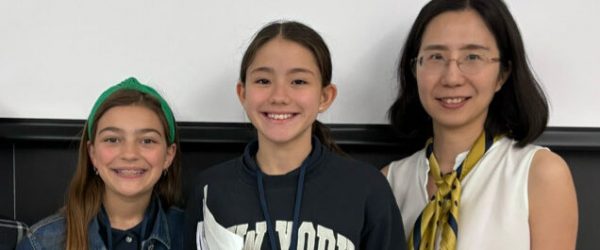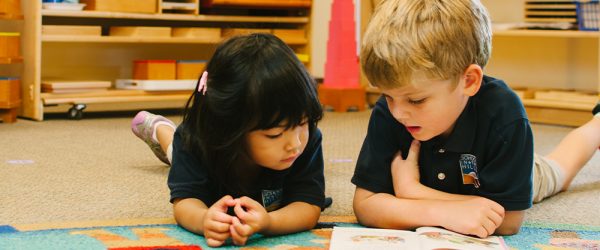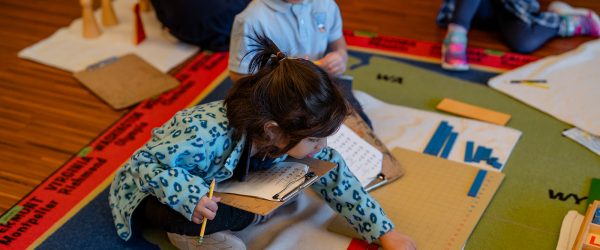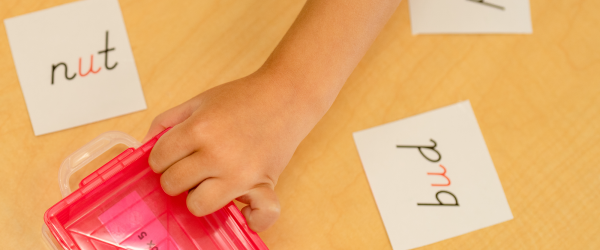The spiral curriculum is an educational approach that emphasizes revisiting and building upon previously learned concepts and skills over time. It is based on the idea that learning is a continuous and iterative process, where students revisit topics in a cyclical manner, deepening their understanding and expanding their knowledge with each repetition.
At School in the Hills, the spiral curriculum is implemented through a carefully designed sequence of materials and activities. Concepts and skills are introduced to children at a basic level, and as students progress, they are introduced to more complex and abstract forms of information. This approach allows students to reinforce their foundational knowledge and skills while expanding their understanding and connecting to abstract concepts.
Our spiral curriculum promotes long-term retention and performance of the material. By revisiting topics and expanding at each developmental stage, students have multiple opportunities to engage with the content, reinforcing their learning and allowing for deeper comprehension. This approach also helps students see the interconnectedness of different concepts and how they build upon one another.
For example, in mathematics, primary students may start by working with concrete materials, such as counting beads or number rods, to understand basic concepts like quantity and numerals. As they become more proficient, they move on to more abstract materials, such as the golden bead material or the decimal system, which introduce more complex mathematical operations and concepts.
In the language area of our Montessori classroom, students begin with phonetic sounds and move on to blending sounds to form words. They then progress to reading and writing sentences and eventually engage in more advanced language activities, such as grammar and composition.
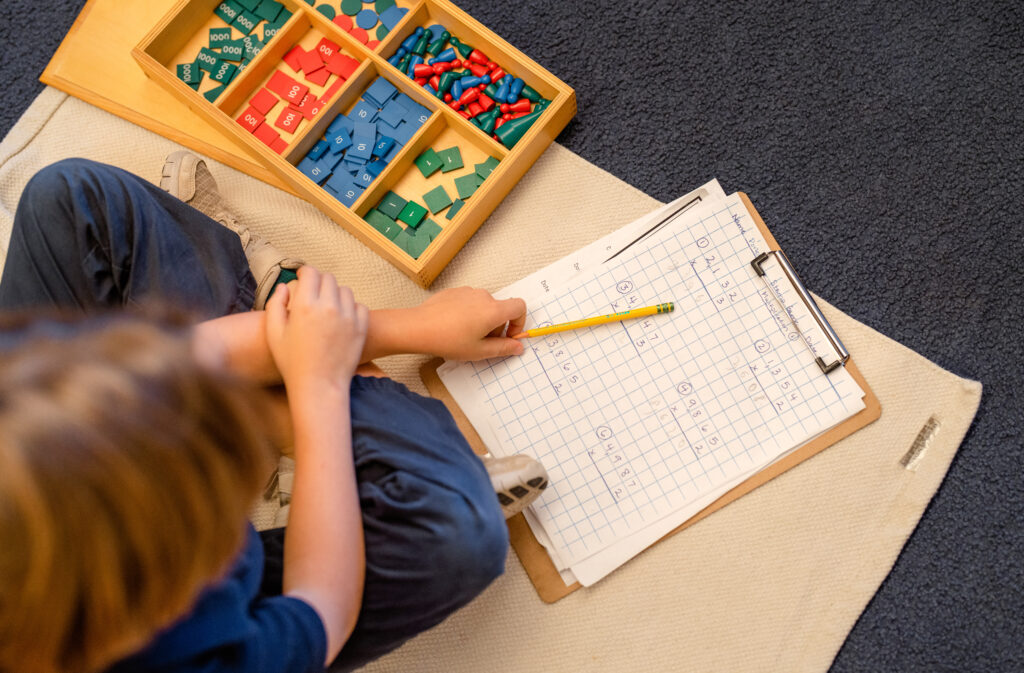
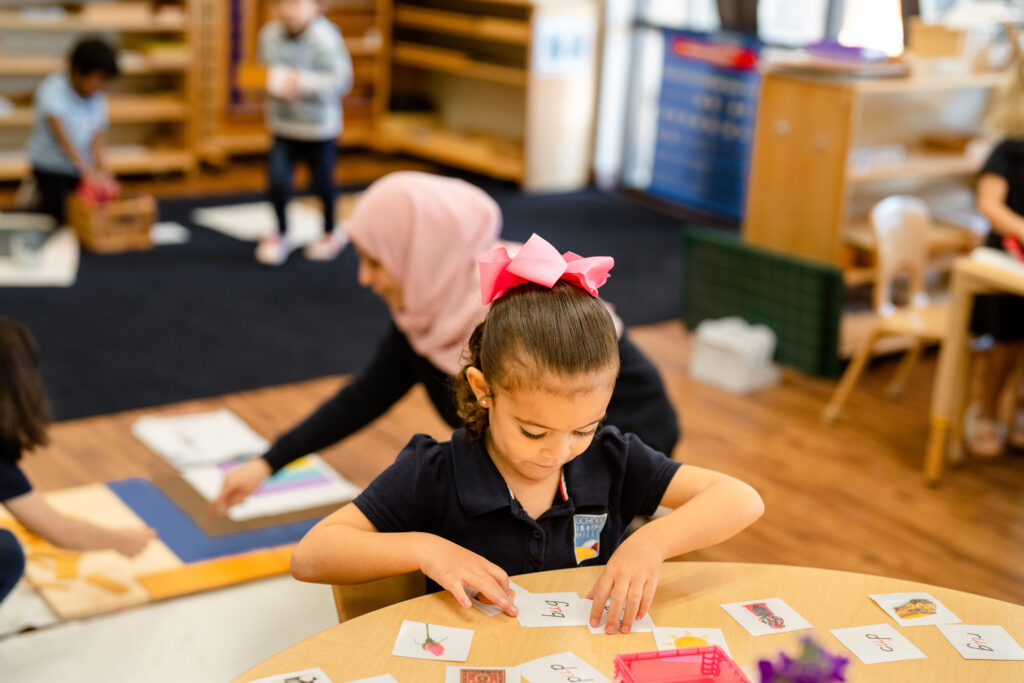
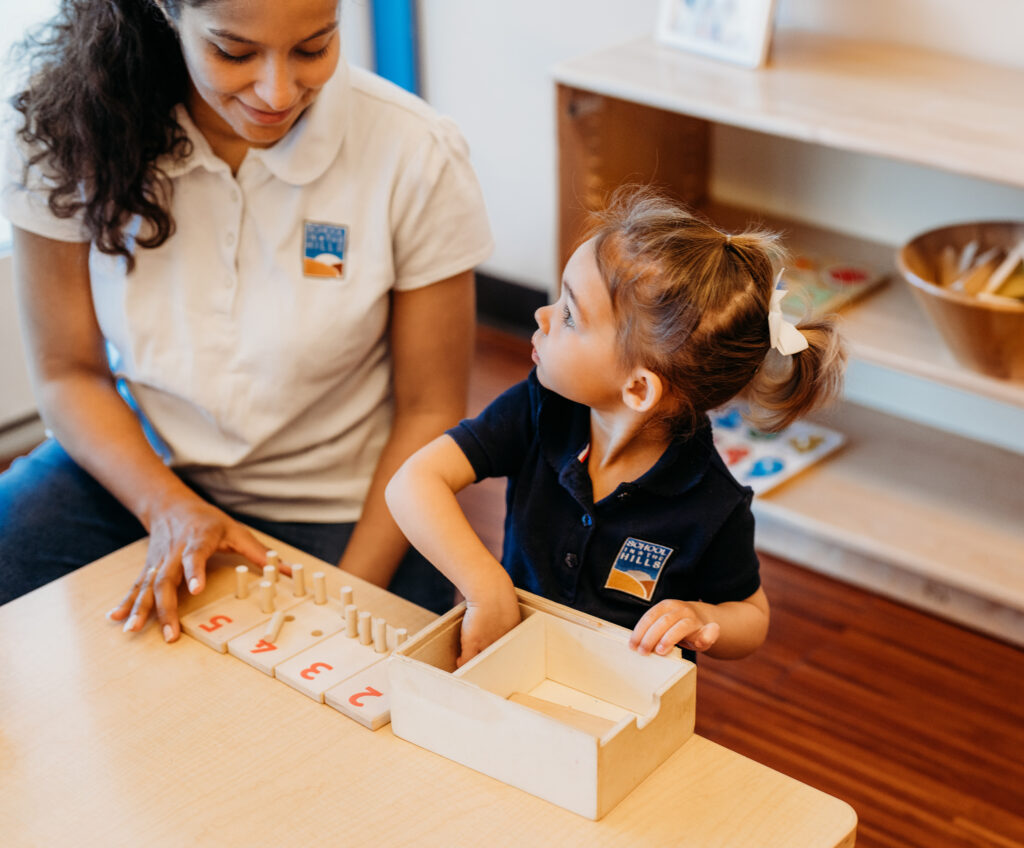
One of the key benefits of the spiral curriculum is that it supports the development of critical thinking and problem-solving skills. As students encounter familiar topics in new contexts or with more advanced applications, they are challenged to apply their knowledge in different ways, encouraging higher-order thinking and analytical skills.
The spiral curriculum is often contrasted with a linear curriculum, where topics are taught sequentially without revisiting previous content, this is a traditional approach to education and is utilized in the public school system. The spiral approach promotes long-term retention, conceptual understanding, and the ability to transfer knowledge to new situations.
